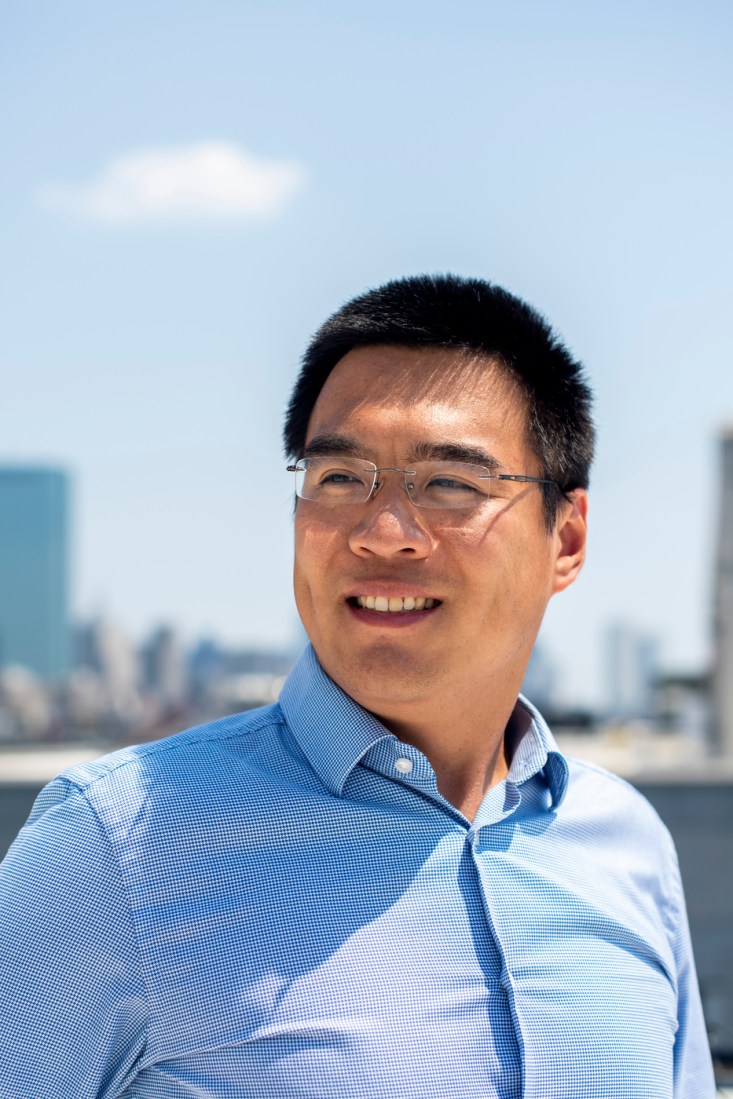Yi Zheng likes to keep busy. In addition to his position as a full-time associate professor of mechanical and industrial engineering at Northeastern University and directing the Nano Energy Laboratory, Zheng also maintains a spinout company, Planck Energies, and volunteers his time as vice president of the Asian Pacific Islander American Public Affairs Association’s (APAPA) Boston chapter.

For both his work as a scientist and his civic engagement, Zheng received the 2022 Scientist of the Year award from the New England Chinese American Alliance (NECAA) on Oct. 11.
The awards were announced at the NECAA’s annual gala. “They gave several awards out,” Zheng says. “And then when they announced scientist of the year, they said my name. I was just enjoying my sushi.”
Zheng develops “nano-scale materials for energy,” he says. In other words, Zheng and his team create technologies at nanometer scales (a nanometer is one-billionth of a meter) that make both energy production and consumption more efficient.
Zheng points to two of his innovations by way of example: desalinating water without the use of electricity, using only natural evaporation mechanisms, and a cooling paper that can be applied to roofs to cool buildings, lowering cooling costs and energy use.
But Zheng’s discoveries aren’t the only thing that the NECAA considered when selecting Zheng for the prize. “They not only focus on your academic accomplishment, but also your engagement in community service,” Zheng says.
This community service is reflected in Zheng’s participation in APAPA, but also in his teaching, which he strives to expand beyond the college classroom.
“This past April, I gave a talk to almost 60 students and teachers” at Weston High School, Zheng says. But he didn’t talk about nanotechnologies. Instead he “talked about all those raw materials” he and his researchers experimented with to develop their zero-emissions water desalination system.
Materials that included different kinds of tree leaves, animal manure and even a hornet’s nest that Zheng collected from a state park.
“I only showed them the technology and science that are everywhere around you,” Zheng says. “We have all of those raw materials surrounding us.”
After this talk, Zheng brought seven high school students to the Nano Energy Laboratory during the summer. “They all spent eight — some actually spent 10 — weeks in my lab,” he says, working on the water treatment and passive cooling systems. “We got inspired by each other.”
Zheng says that sharing his science with others is one of his prime motivators. “I’m a professor, of course, and I do research, but if the research cannot be applied, cannot benefit a human being, to me, that research is meaningless.”
Zheng sees the scientist of the year award as just another steppingstone toward solving some of the world’s most difficult challenges.
As water supplies become increasingly threatened by global warming, in regions with no electricity, communities “can simply use cow or horse manure, collected from their local farmer, from their villages, and they can make their water desalinator.”
“It’s almost zero cost. If you have tree leaves, if you have a cow,” he continues, “you don’t need to worry about fresh water.”
“I really would like to reach out to the United Nations, to sell this concept to them,” he says. “Particularly to third-world or disadvantaged countries.”
“Maybe because I was born in China,” Zheng says, reflecting on why community engagement is so important for him. “At restaurants, our way is to order food for everyone at the table and share, because we care for each other.”
“In my life, anything I can share with people in my community, I will share.”
Noah Lloyd is the assistant editor for research at Northeastern Global News and NGN Research. Email him at n.lloyd@northeastern.edu. Follow him on X/Twitter at @noahghola.
